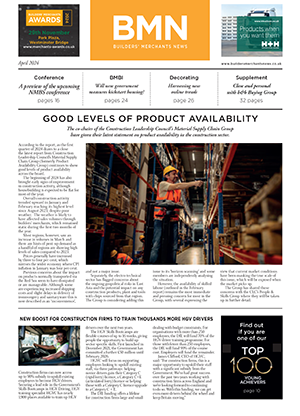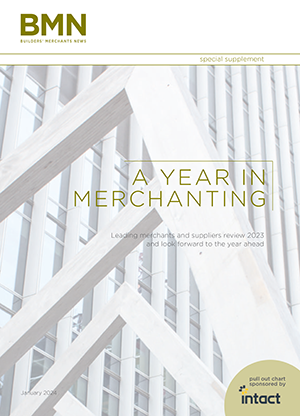In my previous blog post I looked at why builders’ merchants need to start taking returns more seriously and turn them into a new business opportunity. In the concluding part of the series I’m going to look at how this can be achieved.
Data mining: what do returns teach you?
A huge amount of potentially useful information is embedded in returns – and this information can both inform future business practice, and even be used to offer customers actionable insights.
This process can be very simple. For example, knowing that a customer has returned product B because it was the wrong size for their premises makes it very easy to offer product C instead.
But such insights can also be extremely sophisticated. Clever analytics around returns can allow wholesalers to track trends around buying and return patterns – to understand, perhaps that a particular customer always over-orders product D at a particular time of year, but could therefore be cross-sold product E as an alternative. Of, if one customer has returned a batch of products because they didn’t understand how to operate them, this situation can be rectified for other customers with an instructional video. Customer profiling can even mean that a new customer matching a certain profile can be advised that an alternative product might be more suitable for their needs.
Maximising profitability: what to do next
Just a few short years ago, many wholesalers, and indeed consumer-focused retailers, had no alternative but to send returned products straight to landfill. Now, effective returns technology can enable them to smoothly manage returns and convert them into a degree of profit, with a myriad of options now available. For instance, can a product be refurbished? Can it be broken down and sold as parts? Does the wholesaler have an eBay store for shifting products out of their original packaging?
In addition to this, many of the data trends mined from returns can also allow wholesalers to make intelligent decisions in terms of business strategy. For example, accurate information around the reason for returns, as well as predictions as to when particular products are most likely to be returned, can help with maximising resell value. Tracking trends of faulty products can help with the identification of reliable and unreliable manufacturers – and therefore better procurement decisions. If particular customers are perpetual returners, then it may be time to set up a meeting to discuss how to work together better.
In other words, intelligent digital information around returns can help pinpoint appropriate offline activity to continue driving the business forward. Returns data can help shape how wholesalers manage their customers and their suppliers – and in turn, do better business.
Mark Thornton is marketing director at Maginus.








